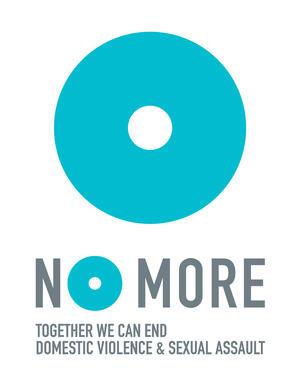Sexual Violence and Judaism: As a Community, We Need To Do More
In 2010, the Center for Disease Control & Prevention found that one in five women and one in 71 men have been raped in their lifetime. These numbers are startling. I know what you’re thinking— why are you bringing this up on a Jewish blog? This sort of thing doesn’t happen in our community. It happens to other people.
Sexual assault and intimate partner violence occur in the Jewish community the same as it does in the rest of the country. It is an issue swept under the rug for most Jews. We point fingers at other groups of people— rape happens in the city, in other religious communities, in communities with no religion, but certainly not us, we say! This attitude allows perpetrators to continue their behavior and victims to feel ashamed and blamed. The truth is, we are not immune to this serious public health concern.
It’s time for the Jewish community to start taking sexual assault and intimate partner violence seriously.
What is sexual assault? What is intimate partner violence?
Sexual assault is any forced, manipulated, or coerced sexual activity to which a person does not or cannot consent. Intimate partner violence is defined by the CDC as physical, sexual, or psychological harm by a current or former partner or spouse. Many people think of “strangers in the night” being the main perpetrators, but in reality, sexual assault most frequently occurs by someone the victim knows. Some see talking about sex in faith communities as an elephant in the room and because of this, people are unaware of how to consent to sexual activity. This can cause breaks in relationship communication and result in unhealthy relationships.
Specific Challenges Facing Jewish victims:
- No one admits this is an issue in our culture, meaning more education on the topic is needed.
- Rape Crisis Centers can be unfamiliar with Jewish practices and culture, so victims may not use their services.
- Sometimes service providers, like rape crisis centers, and faith communities do not always work together.
- Jewish circles are small, and victims and abusers may share common community threads.
- An abuser could force a victim to make choices between observing religious practices and other parts of their life (for example, messing with the victim’s kosher dishes).
- Victims can be abused based on their Jewish identities. An example of this would be verbal abuse— making anti-Semitic comments.
- The more intersections, the harder and fewer resources are available— gay and Orthodox, black and Jewish, disabled and Jewish.
Jewish organizations making change:
- Jewish Domestic Violence Coalition
- Jewish Family & Children’s Services’ Journey to Safety Program
- Safe Havens Interfaith Partnership Against Domestic Violence
- Jewish Women’s International
- But all Jewish agencies should be doing more, not just leaving it to specific niche organizations. The more we talk about this issue, the less it can be ignored.
What you can do to prevent sexual assault/intimate partner violence from happening/in your Jewish community:
- Encourage Rabbis and congregations to talk about sexual assault and intimate partner violence in sermons, social justice discussions, and also to make synagogues safer places.
- Train as a volunteer/advocate at your local rape crisis center.
- Have resources available about sexual assault/domestic violence in public Jewish spaces.
- Educate people in your Jewish work spaces on what sexual assault is and how it effects the community at large.
- Use curriculum in schools around sexual assault and dating violence. If you work at a Jewish school, you can use a JWI curriculum which puts this issue in a Jewish context. There are also secular curriculums, such as Safe Dates, that are excellent.
- Donate to your local rape crisis center. Make sure they are meeting the needs of Jewish clients (such as having kosher food available in shelters and offering opportunities for them speak to Rabbis appropriate to their observation of Judaism). If they are not competent in this, agitate and push them to be better.
- Push Jewish and non-Jewish organizations to address the intersections of oppression that affect all people: make buildings wheelchair accessible, hire bi- and multilingual individuals, have staff trained in creating Lesbian, Gay, Bisexual, Transgender and Queer (LGBTQ) safe spaces, etc.
To make a donation to A New Day, where Kate works, please visit Health Imperatives.







